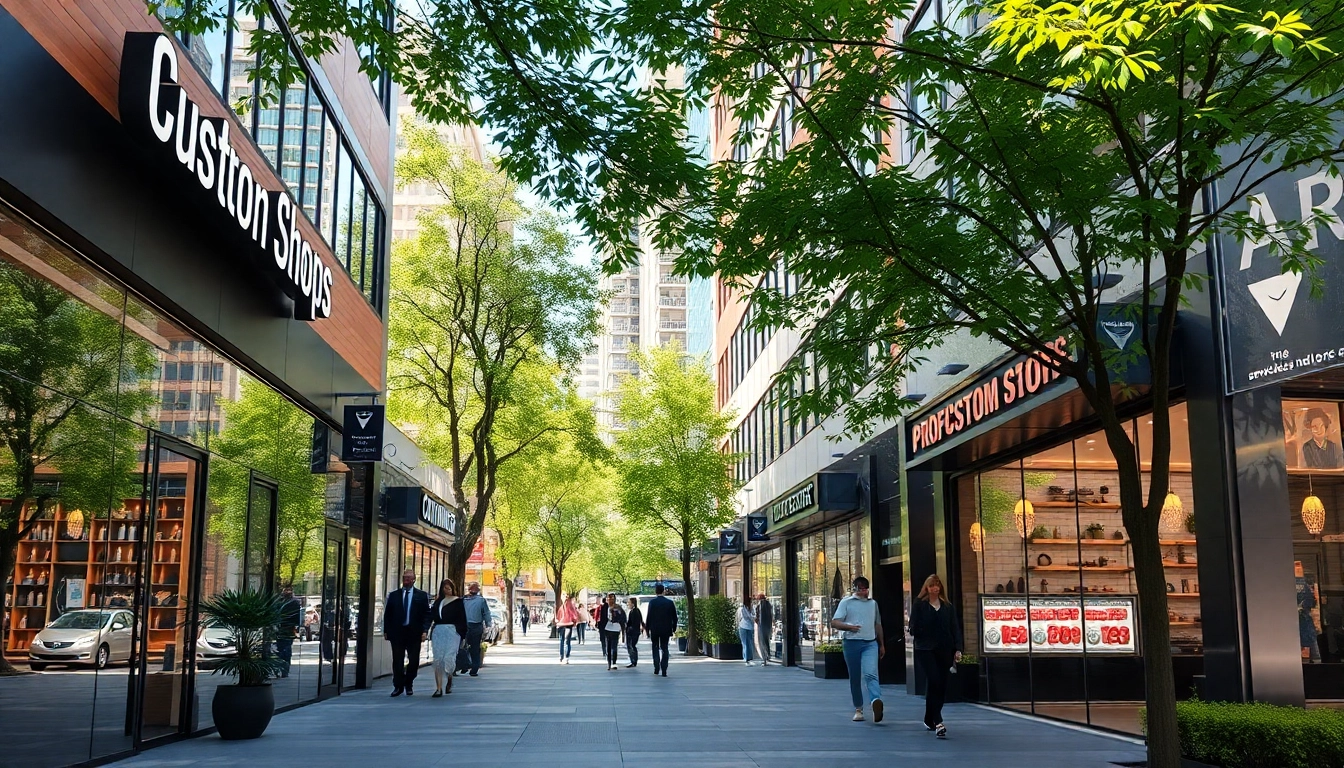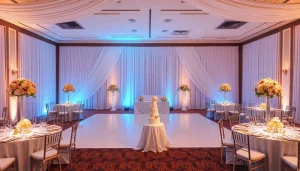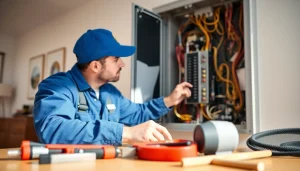Enhancing Your Experience with Custom Shops: Unique Offerings and Personalized Service
Understanding the Value of Custom Shops
In an increasingly mass-produced world, custom shops offer a refreshing oasis where individuality and personalization reign. Custom shops span various industries, from retail to artisan crafts, serving customers who desire unique products tailored to their specific preferences. By choosing custom shops, consumers often find not just products, but a personalized shopping experience that reflects their identity and style.
What are Custom Shops?
Custom shops are specialized businesses offering tailored products or services, often emphasizing craftsmanship and individuality. Unlike traditional retail outlets, which typically stock mass-produced items, custom shops focus on creating unique pieces that are made to order. This can include anything from custom furniture and clothing to bespoke jewelry and art. The essence of a custom shop is its dedication to meeting the specific needs and desires of its clients, providing a level of service and product customization that is often unmatched in bigger retail settings.
Benefits of Choosing Custom Shops
Opting for custom shops carries numerous advantages. Here are some key benefits:
- Personalization: Custom shops allow for a high degree of personalization, ensuring that the final product resonates with the client’s tastes and requirements.
- Quality Craftsmanship: Many custom shops prioritize quality over quantity, often using premium materials and skilled artisans to craft their products.
- Unique Offerings: Customers can find unique items that are not available in mainstream retail stores, thus allowing for a distinctive personal style.
- Supporting Local Businesses: By choosing custom shops, consumers often support small businesses and local artisans, contributing positively to their local economies.
- Enhanced Shopping Experience: The process of collaborating with artisans and shop owners can make shopping more enjoyable, as customers can engage in the creative process.
Common Services Offered by Custom Shops
Custom shops cater to a variety of needs and industries, which can include:
- Custom Design Services: Many shops offer design consultations to help customers conceptualize and create their ideal products.
- Repair and Alteration Services: Besides creating new items, custom shops can often repair or alter existing products to better fit the customer’s needs.
- Personalized Branding: Custom shops often help businesses and individuals establish a personal brand through tailored items, such as logos on clothing or custom packaging.
- Art and Craft Workshops: Some custom shops host workshops, allowing customers to create their own products and learn new skills.
How to Select the Right Custom Shop
Choosing the right custom shop can significantly impact your overall experience, product quality, and satisfaction. Here are several key factors to consider during your selection process.
Factors to Consider When Choosing a Custom Shop
When selecting a custom shop, it’s imperative to consider the following factors:
- Portfolio of Work: Evaluate the shop’s portfolio to gauge their style, quality, and expertise. Look for examples that resonate with your vision.
- Experience and Expertise: Assess how long the shop has been in business and their level of proficiency in the specific custom work you desire.
- Customer Service: A key indicator of a good custom shop is its customer service. Engage with the shop and note their responsiveness, willingness to help, and attitude toward your ideas.
- Pricing Structure: Ensure that the shop’s pricing aligns with your budget. Understand the costs involved upfront, including any additional fees for design revisions or special materials.
- Location and Accessibility: Depending on what you need, having a reliable, accessible custom shop nearby can simplify the process, especially if you plan to visit in person for consultations.
Evaluating Custom Shops: Reviews and Ratings
Online reviews and ratings are crucial resources when evaluating custom shops. Customer testimonials can provide insights into the quality of service and products offered. Here’s how to make the most of this information:
- Check Multiple Platforms: Look for reviews on various platforms, including social media, Google, and specialized review sites to get a well-rounded view.
- Look for Patterns: Pay attention to recurring themes in the reviews, whether positive or negative, to help inform your decision.
- Ask for References: Don’t hesitate to request references from past clients to gain firsthand insights into their experiences.
Identifying Your Needs Before Visiting
Before visiting a custom shop, it’s important to clearly identify your needs and preferences. Consider the following steps:
- Define Your Goals: Whether it’s a piece of furniture, clothing, or artwork, determine what you want and how you intend to use it.
- Gather Inspiration: Collect images, samples, or sketches that reflect your desired outcome — this will facilitate communication with the shop.
- Set a Budget: Establish a clear budget to avoid overspending. Knowing your financial limits can help shape your requests and expectations.
Popular Types of Custom Shops
Custom shops come in various forms and serve different purposes. Here’s a look at some popular types:
Custom Retail Shops: A Closer Look
Custom retail shops focus on providing personalized products tailored to individual consumer preferences. Examples include custom clothing retailers, personalized gift shops, and tailored shoe makers. These shops typically emphasize quality materials and craftsmanship, which cater to customers who value uniqueness in their purchases.
Artisan Custom Shops: Unique Crafts and Goods
Artisan custom shops specialize in handcrafted items, often revolving around specific skills or crafts. These businesses may include potters, jewelry makers, woodworkers, and other craftspeople. Artisan custom shops typically offer one-of-a-kind products that tell a story, reflecting the artisan’s creative vision and craftsmanship.
Custom Service Shops: Tailored Experiences and Solutions
These shops offer services rather than physical products, like custom catering services, home remodeling teams, or personalized consulting firms. They focus on delivering tailored solutions that meet the unique needs of individual clients. A significant advantage of choosing a custom service shop is the ability to receive a service that fully aligns with one’s expectations.
Best Practices for Engaging with Custom Shops
Building a positive relationship with custom shop owners can enhance your shopping experience and ensure you receive a product that meets your expectations. Here are some best practices:
Tips for Building Relationships with Custom Shop Owners
Establishing a good rapport with custom shop owners can lead to better communication and results. Here are some effective tips:
- Be Respectful of Their Expertise: Shop owners have skills and knowledge that can greatly improve your project. Seek their recommendations and respect their professional opinions.
- Maintain Open Communication: Provide clear feedback during the design process and keep an open line of communication, ensuring that both parties are in sync as the project progresses.
- Show Appreciation: A simple thank-you or acknowledgment of their hard work can go a long way in fostering a positive relationship.
How to Communicate Your Ideas Effectively
Effectively communicating your ideas can help ensure your vision is accurately translated into the final product. Consider these strategies:
- Be Specific: Provide detailed descriptions when discussing your ideas. Use a mood board or sketches to visually represent your thoughts.
- Ask the Right Questions: Inquire about the feasibility of your ideas and any recommendations from the shop owner to bridge your vision with practical execution.
- Emphasize What’s Important: Communicate your priorities, whether it be budget, material choices, or the artistic direction. This information can help the shop tailor their offerings to suit your needs.
Leveraging Social Media to Connect with Custom Shops
Social media platforms provide an excellent avenue for connecting with custom shops and staying updated on their offerings. Here are ways to effectively use social media:
- Follow and Engage: Follow your favorite custom shops on social media to gain insights into their latest products and services. Engage with their posts to show interest and get involved in their community.
- Share Your Experience: Show appreciation by sharing your purchases or experiences online. Use hashtags relevant to the shop to help promote their work and connect with other patrons.
- Participate in Promotions: Custom shops may host contests or events on social media, providing additional opportunities for engagement and discovering more about their offerings.
Maximizing Your Experience at Custom Shops
To get the most out of your experience at custom shops, consider these tips for enhancing your shopping journey:
Creating a Unique Shopping Experience
The goal of visiting a custom shop is to enjoy a unique and memorable experience. Here’s how to ensure that:
- Explore the Shop: Take your time to browse the shop’s offerings, as you might discover hidden gems that inspire new ideas.
- Engage with Staff: Converse with the staff about the products, the connections they have to local artisans, and the stories behind the items. This interaction can enhance your appreciation for the craftsmanship.
- Attend Special Events: Many custom shops host events, workshops, or exhibitions. Participating in these events can provide you with a deeper understanding of the craftsmanship and community behind the shop.
Feedback and Improvement: Partnering with Custom Shops
Providing feedback is an essential aspect of collaborating with custom shops. Here’s how to give constructive feedback:
- Be Honest and Specific: When offering feedback, be clear about what you liked and what could be improved.
- Focus on the Process: If something does not meet your expectations, focus on the creative process rather than personalizing critiques against the shop.
- Encourage Future Collaboration: Highlight what you loved about the finished product and express willingness to collaborate again in the future.
Case Studies: Success Stories from Happy Clients
Sharing success stories can provide inspiration and insight for potential customers. Here are a couple of examples:
- The Tailored Suit Experience: A client seeking a custom-made suit collaborated closely with a local tailor. By discussing their preferences in detail, the tailor was able to craft a suit that matched the client’s exact specifications, resulting in a perfectly fitted garment that garnered compliments at every event the client attended.
- Artisan Furniture Project: An interior designer partnered with a custom furniture shop to create a unique coffee table for a client’s home. Through several iterations of designs based on customer feedback, the final product was not only functional but an artistic centerpiece that tied the entire room together.



